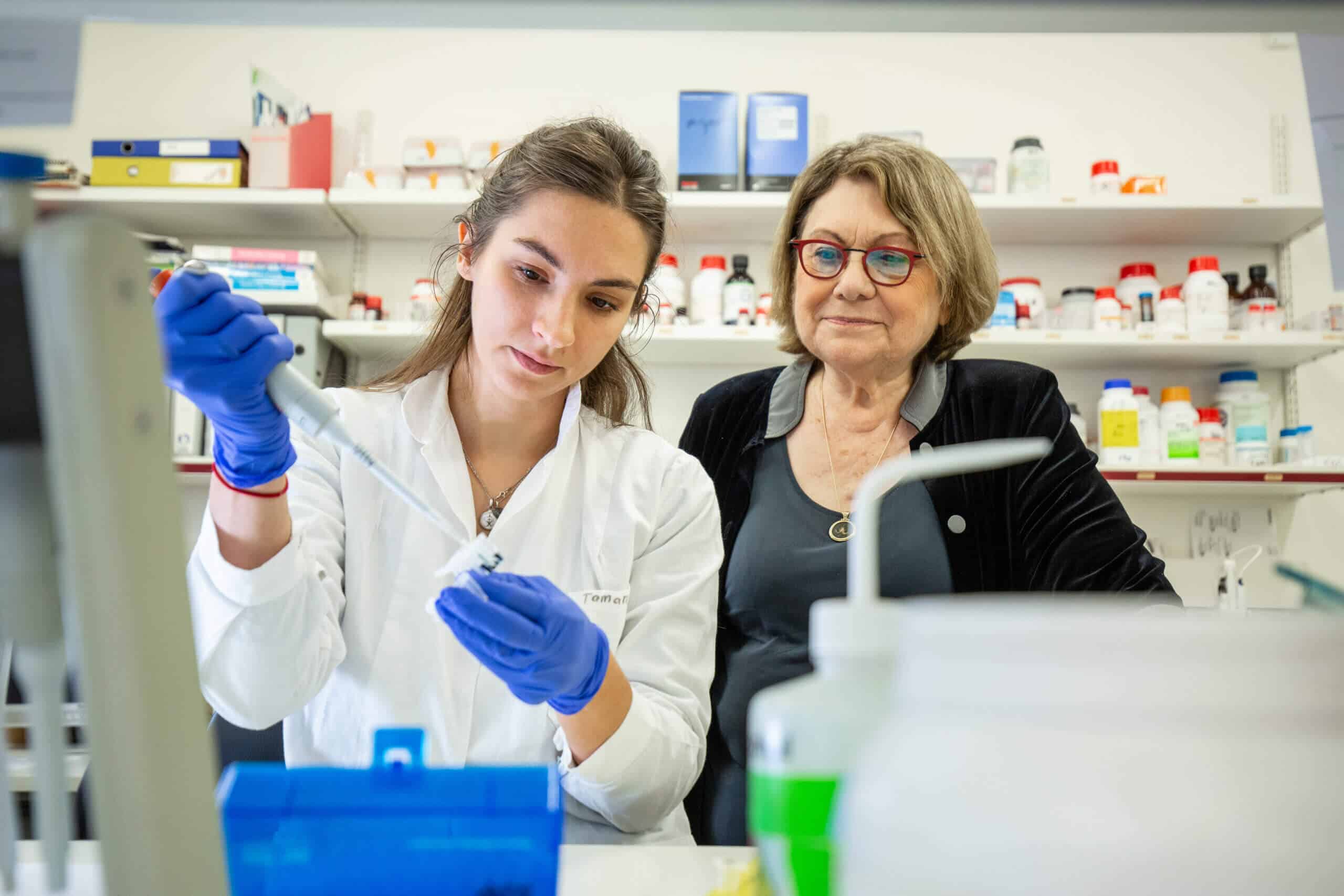Professor Hermona Sorek, one of the world's leading researchers of gene expression in the brain, was able to find, in collaboration with her research colleagues, a molecular mechanism that occurs in the brains of Alzheimer's patients, which does not occur in men and which explains the acceleration of cognitive deterioration in Alzheimer's patients

A new study led by Hebrew University researchers, Professor Hermona Sorek and Professor Yonatan Levinstein from the Safra Center for Neuroscience and the Institute for Life Sciences, found a surprising molecular mechanism in the brains of patients with Alzheimer's disease, which explains the rapid deterioration in the cognitive indices of women compared to men with the disease. The article was published in the prestigious journal Alzheimer's & Dementia: The Journal of the Alzheimer's Association.
Alzheimer's disease is one of the most severe degenerative diseases, the main cause of dementia, and it is known that it tends to affect more severely women, who experience a faster decline in their cognitive abilities, compared to male patients. Today, many researchers are looking for information on the factors that lead to cognitive decline in the disease and are trying to develop drug treatments to prevent the symptoms. The therapeutic protocol today only aims to delay the development of the symptoms of the disease and is known to cause more severe side effects in women with the disease, compared to male patients. This means that the decline in the functioning of women with Alzheimer's disease does not stop as a response to treatment and the side effects caused by the treatment are more severe compared to male patients.
The study found for the first time a direct link between a family of tiny RNA fragments and the rate of development of the disease in women. The researchers discovered that the depletion of the stores of these RNA fragments in the brain reflects a rapid development of cognitive impairment among women with Alzheimer's, but does not reflect changes in the structure of the brain, but rather in the cognitive index of the sick women. "Our study showed in an unusual way that the reserves of fragments of mitochondrial RNA, known to be donated by the mother, are depleted in the affected brain nuclei and that this phenomenon is particularly noticeable in the brains of women who suffer from it. The research findings shed new light on the control mechanisms for the development of Alzheimer's disease among women and emphasize the essential differences, not only in the way the disease develops in women, at a faster rate than in men and with a faster deterioration in cognitive indicators, but also in the way the symptoms are treated, since today RNA-based treatments have become a practical possibility following the corona epidemic, and there is room for hope against this background," explained Prof. Sorek.
"This is the first time that we can offer a molecular explanation for the processes that occur in the brains of patients and why the treatment protocol that has been offered to them to date is not satisfactory. The discovery can have an impact on the way we research and treat Alzheimer's and dementia", Prof. Sorek concluded, adding: "I am hopeful that the new discovery will lead to good and optimal treatment for Alzheimer's patients and assistance to them and their families around the world."
The innovative research was carried out by a number of researchers headed by Prof. Shurk and Prof. Levinstein, the student Dana Shulman, and in collaboration with American colleagues, including Prof. David Bennett from Chicago, Eliot Mapson from Arizona and Sudha Sashdri from Texas, and was supported by the American Research Institutes and the Foundation for Basic Research and with the support of Keren Stein and Sami Segol.
